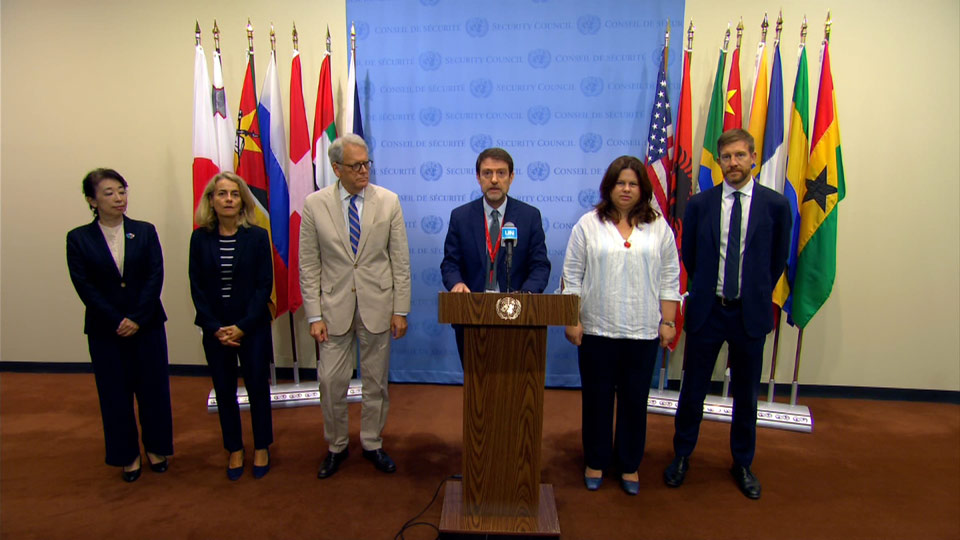UNSC condemns Russia's brutal invasion, continued military presence in Georgia
On the 15th anniversary of the 2008 Russia-Georgia war, members of the United Nations Security Council (UNSC) called on the Russian Federation to fully fulfill the internationally-taken commitments and to withdraw its military troops from Georgia’s territory.
Representatives of Albania, France, Japan, Malta, the United Kingdom and the U.S. held a closed-door meeting on the situation in Georgia.
“15 years have passed since Russia’s full-scale military aggression against and subsequent illegal military presence in 20% of Georgia’s sovereign territory. The Russian invasion of Georgia in August 2008 marked a more aggressive trend in Russia’s policy regarding its neighboring countries and the European security architecture. As we are witnessing in Ukraine today, Russia has continued down this path.
Council members, France, Japan, Malta, the United Kingdom, United States, we are resolute in our reaffirmation of Georgia’s independence, sovereignty, and territorial integrity within its internationally recognized borders. We deplore the continuous blatant violation of the territorial integrity of Georgia by the Russian Federation. We condemn Russia’s brutal invasion, continued military presence, and exercising of effective control over Abkhazia and Tskhinvali region, South Ossetia, which are integral parts of Georgia and Russia’s steps towards the annexation of these Georgian regions.
We reiterate our condemnation of Russia’s continuous provocations, which go in parallel with the Russian Federation’s unprovoked and unjustified aggression against Ukraine, the continued military drills in Georgia’s territories, sea, and aerospace. The enhanced so-called borderization process by erecting barbed wire fences, and other artificial barriers, unlawful detentions and abductions of the local population, interference with freedom of movement and persistent closure to the so-called crossing points, discrimination against ethnic Georgians and the prohibition on education in residence native language and deliberate damage to Georgian culture, and heritage institutions,” said Ferit Hoxha, the Permanent Representative of Albania to the United Nations.
